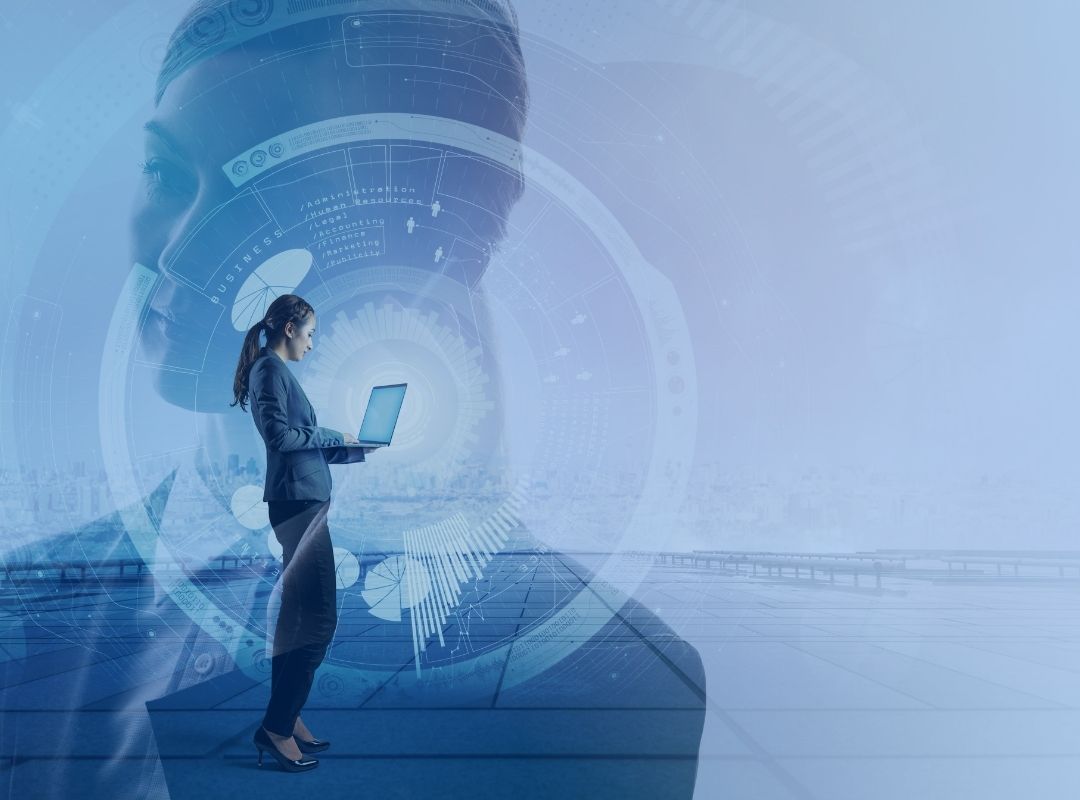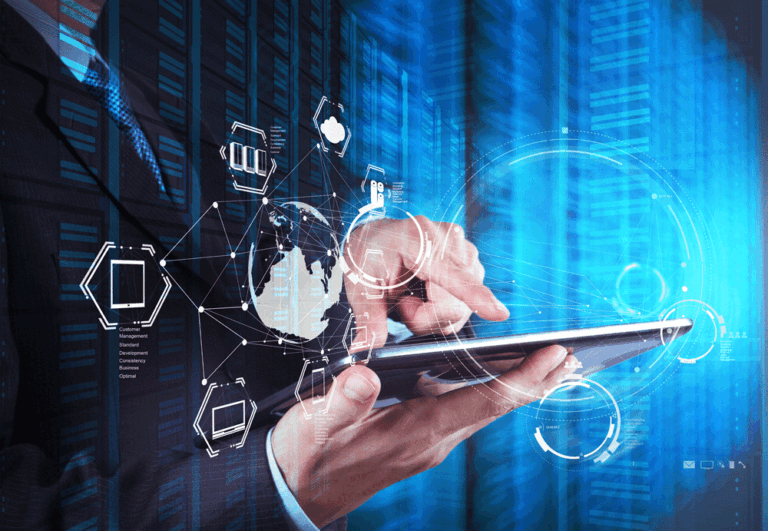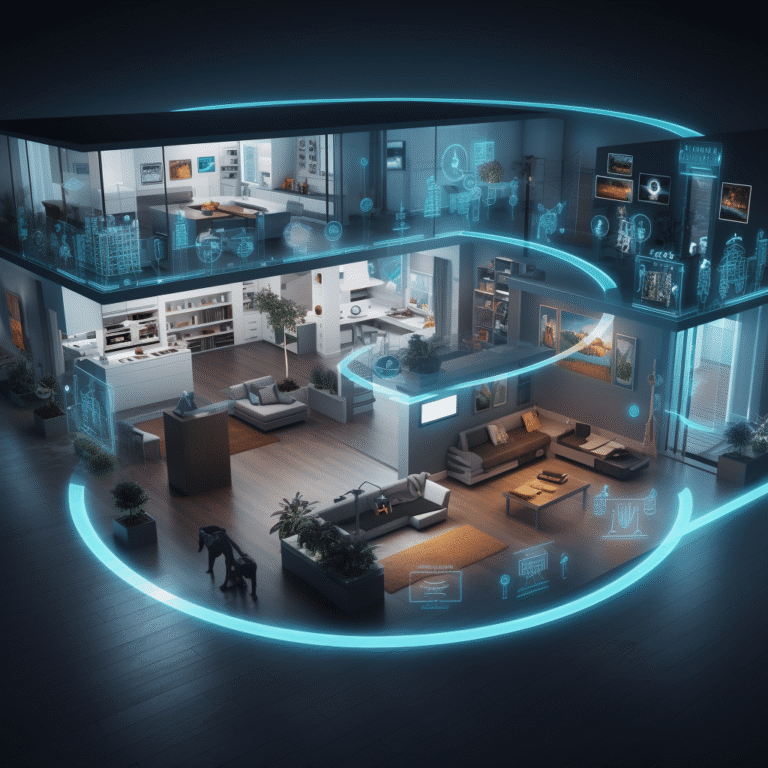Tech Trends Shaping 2025
As we navigate through 2025, technology continues to evolve at an unprecedented pace, reshaping industries, societies, and individual lives. From artificial intelligence to quantum computing, the innovations of today are laying the groundwork for a future that promises greater connectivity, efficiency, and creativity. This article delves into the most impactful tech trends of 2025, exploring their implications and potential to transform the world.
With advancements in AI, the expansion of 6G networks, the rise of decentralized systems, and breakthroughs in biotechnology, the tech landscape is vibrant and dynamic. These trends are not just technological feats; they are catalysts for economic growth, social change, and environmental sustainability. Let’s dive into the key trends driving this transformation.
1. Artificial Intelligence and Machine Learning
Artificial Intelligence (AI) and Machine Learning (ML) remain at the forefront of technological innovation in 2025. AI systems are becoming more sophisticated, moving beyond traditional applications like chatbots and recommendation systems to powering autonomous vehicles, advanced robotics, and personalized healthcare.
One significant development is the rise of **AI agents**—autonomous systems capable of performing complex tasks with minimal human intervention. These agents are being used in industries ranging from logistics, where they optimize supply chains, to finance, where they detect fraud in real-time. For example, AI-driven predictive maintenance in manufacturing reduces downtime by anticipating equipment failures before they occur.
Additionally, **generative AI** has evolved, enabling the creation of hyper-realistic content, from text and images to music and video. This technology is revolutionizing creative industries, allowing artists and designers to collaborate with AI to produce innovative works. However, it also raises ethical questions about authenticity and intellectual property, prompting new regulations to address deepfakes and AI-generated misinformation.
The democratization of AI tools is another trend to watch. Platforms like open-source AI frameworks and no-code AI solutions are empowering small businesses and individuals to leverage AI without needing advanced technical expertise. This accessibility is fostering a new wave of innovation across sectors.
2. The Dawn of 6G Connectivity
While 5G networks are still being rolled out in many parts of the world, 6G is already on the horizon, promising unprecedented speed, latency, and connectivity. Expected to launch commercially by the end of the decade, 6G is set to deliver data transfer speeds up to 100 times faster than 5G, with near-zero latency.
6G will enable transformative applications, such as holographic communication, immersive virtual reality (VR) experiences, and real-time remote surgeries. It will also support the growing Internet of Things (IoT) ecosystem, connecting billions of devices seamlessly. For instance, smart cities will leverage 6G to manage traffic, energy consumption, and public safety with unparalleled efficiency.
Sustainability is a key focus of 6G development. Researchers are exploring energy-efficient protocols to reduce the environmental impact of network infrastructure. Additionally, 6G’s ability to support edge computing will decentralize data processing, reducing the reliance on energy-intensive data centers.
However, challenges remain, including the need for global standards and infrastructure upgrades. Governments and tech companies are investing heavily in 6G research, with countries like China, South Korea, and the United States leading the race.
3. Decentralized Technologies and Web3
The concept of Web3, powered by decentralized technologies like blockchain, is gaining traction in 2025. Unlike the centralized internet of today, Web3 aims to give users control over their data, identity, and digital assets. This shift is driven by blockchain’s ability to create transparent, secure, and tamper-proof systems.
**Decentralized finance (DeFi)** continues to disrupt traditional banking by offering peer-to-peer lending, borrowing, and trading without intermediaries. In 2025, DeFi platforms are becoming more user-friendly, attracting mainstream adoption. Similarly, **non-fungible tokens (NFTs)** have evolved beyond digital art, finding applications in real estate, gaming, and intellectual property management.
**Decentralized autonomous organizations (DAOs)** are also reshaping governance and collaboration. DAOs enable communities to make collective decisions through smart contracts, eliminating the need for centralized authority. This model is being adopted in areas like open-source software development and community-driven investment funds.
Despite its promise, Web3 faces hurdles, including scalability issues and regulatory uncertainty. Blockchain networks like Ethereum are addressing these challenges through upgrades like sharding, which improves transaction throughput. As Web3 matures, it has the potential to redefine how we interact with the digital world.
4. Quantum Computing Breakthroughs
Quantum computing is no longer a distant dream but a tangible reality in 2025. Companies like IBM, Google, and startups like Rigetti are making significant strides in building scalable quantum computers. These machines leverage the principles of quantum mechanics to perform computations at speeds unattainable by classical computers.
In 2025, quantum computing is being applied to complex problems in fields like cryptography, drug discovery, and climate modeling. For example, quantum algorithms can simulate molecular interactions, accelerating the development of new pharmaceuticals. Similarly, quantum computers are being used to optimize renewable energy systems, such as solar panel efficiency and battery storage.
However, quantum computing is still in its early stages, with challenges like error correction and qubit stability. Hybrid quantum-classical systems are bridging the gap, allowing businesses to experiment with quantum applications while relying on classical infrastructure.
The race for quantum supremacy is also a geopolitical issue, with nations investing heavily to secure a competitive edge. As quantum technology matures, it will redefine industries and challenge existing cybersecurity paradigms, necessitating quantum-resistant encryption.
5. Biotechnology and Personalized Medicine
Biotechnology is revolutionizing healthcare in 2025, with personalized medicine leading the charge. Advances in genomics, CRISPR gene editing, and AI-driven diagnostics are enabling treatments tailored to individual patients’ genetic profiles.
**CRISPR-based therapies** are being used to treat genetic disorders like sickle cell anemia and certain cancers. These therapies edit DNA with precision, offering hope for previously untreatable conditions. Meanwhile, AI-powered diagnostic tools analyze vast datasets, from medical imaging to genetic sequences, to detect diseases earlier and more accurately.
Wearable health devices are also becoming more sophisticated, monitoring vital signs in real-time and providing actionable insights. These devices, combined with telemedicine platforms, are making healthcare more accessible, especially in remote areas.
Ethical considerations, such as equitable access to advanced treatments and the potential misuse of genetic data, remain critical challenges. Regulatory frameworks are evolving to ensure patient safety and privacy while fostering innovation.
6. Sustainable Technology and Green Innovation
As climate change remains a global priority, sustainable technology is a key trend in 2025. Innovations in renewable energy, carbon capture, and circular economy models are driving progress toward a greener future.
**Green hydrogen** is emerging as a clean energy source, powering everything from vehicles to industrial processes. Advances in electrolysis technology are making hydrogen production more efficient and cost-effective. Similarly, **carbon capture and storage (CCS)** technologies are being deployed at scale to reduce emissions from heavy industries.
The circular economy is also gaining traction, with companies designing products for reuse and recycling. For example, modular electronics allow users to upgrade components rather than replace entire devices, reducing e-waste.
AI is playing a pivotal role in sustainability, optimizing energy grids, predicting climate patterns, and improving agricultural yields. These technologies are helping businesses and governments meet net-zero goals while addressing global food security.
Conclusion
The tech trends of 2025 are not just about innovation; they are about redefining how we live, work, and interact with the world. From AI’s transformative potential to the promise of 6G and quantum computing, these advancements are paving the way for a more connected and sustainable future. However, with great power comes great responsibility. Ethical considerations, regulatory frameworks, and equitable access will be crucial to ensuring these technologies benefit all of humanity.
As we move forward, collaboration between governments, industries, and communities will be essential to harness the full potential of these trends. The future is bright, and 2025 is just the beginning of a new era of technological possibilities.






